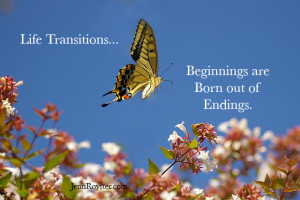 There is an art of how to walk in mud. One evening I was running an errand and the only place I could park close to my destination was right smack in the muddy parking lot! I had to think about how to park so that when I stepped out I would be in the least thickness of that North Carolina red slippery clay. Thinking about how to step out of the car and where to put my feet was also a consideration. Then figuring out how to navigate a gravel dirt parking lot that had turned to goopy red ochre puddles was also something to do with much thought, literally jumping from one side of the mush to the other side hoping for the harder higher ground to land on. I had to sacrifice my desire to keep my shoes clean in order to complete my task. I had to also accept that when I returned to the car I would have to go through this muddy mine field once again and bring onto my clean floor board of my car this red substance. So much to think about. Just so I could complete an important task I had made in my mind that was worth the effort.
There is an art of how to walk in mud. One evening I was running an errand and the only place I could park close to my destination was right smack in the muddy parking lot! I had to think about how to park so that when I stepped out I would be in the least thickness of that North Carolina red slippery clay. Thinking about how to step out of the car and where to put my feet was also a consideration. Then figuring out how to navigate a gravel dirt parking lot that had turned to goopy red ochre puddles was also something to do with much thought, literally jumping from one side of the mush to the other side hoping for the harder higher ground to land on. I had to sacrifice my desire to keep my shoes clean in order to complete my task. I had to also accept that when I returned to the car I would have to go through this muddy mine field once again and bring onto my clean floor board of my car this red substance. So much to think about. Just so I could complete an important task I had made in my mind that was worth the effort.
Transitions in life are like this…Mud-Walking. Sometimes if we lose sight of the vision of the future and what we are trying to accomplish, we give up way to early, turning around and taking a path with less obstacles in the way, less goopiness. We all feel a need to change in our lives and this will bring transition. If we do not change then we will be stuck in the mud…which is like being in sinking quick sand, where we will never see the light or sink before we achieve what we desire.
As a coach and a therapist, but most of all a human being, I am well acquainted with being stuck and transitions. Being stuck signals to me that I must move into a time of change which is very much like the analogy of a muddy path, full of potholes and mud puddles that I have to navigate. William Bridges, author of Transitions: Making Sense of Life’s Changes, says there are three phases of transition: Endings, The Neutral Zone, and The New Beginning. He says that “transition is the way to personal development.”
The End is Where We Start From
 Managing Endings means letting go of the things of the past that do not serve you anymore. What has not been working for you?
Managing Endings means letting go of the things of the past that do not serve you anymore. What has not been working for you?- Accepting that something new is about to happen even if you do not know what it is yet. What is your vision for the future?
- Reframing the End as something that has brought you into a place of change no matter how hard it is. What does this ending mean to me? What am I learning?
- Allowing yourself to grieve the past. It is OK to feel the way you do, which may be disilluntioned, disoriented, sad, confused, etc. What do I need to do to take care of myself right now while this feels so awful?
- Recognize when there is sense of being stuck, that leads to a desire to for change, sometimes even excitement about the possibilities. This is the a signal that you are coming into the next phase of transition.
The Middle of the Path – The Neutral Zone
- This part of the journey is the hardest part…feels very uncomfortable and is truly a big muddy path. What can I do to make sure I have sure footing right now?
- The only way out is through. The Neutral Zone requires you to sit with pain, to act with intention and to dream big. It requires you to take small steps so you will not fall and when you do (and you will) to ask for help and get back up again. Who can I ask for support?
- Your life will feel like it is being torn up into bits, and that you cannot find direction. But if you are taking care of yourself, getting support and allowing yourself to dream, you will keep yourself together…and something beautiful will begin to form. Be willing to ask the hard questions and take a deep look at what you want next. What is it I want out of life? What is my dream?
- There is usually a determination and a sense of perserverance that motivates you through this change. Gaining insight about the future and support as you go through disappointment and difficulties can help in this stage. What is it that I am working toward? Who can encourage me? What strategies do I need to incorporate that will support me?
The Future – The New Beginning
 Sometimes there is not a clear definition of when you are finished Mud-Walking. But you will notice that the tightness in your inner body will begin to subside some, and you will have to remind yourself that you no longer have to be so concerned about falling in the mud, or making a mistake or the future. You are moving forward. You will notice yourself thinking more of the future, enjoying the present, less obsession on the past. What am I enjoying in my life right now? What do I want my life to look like?
Sometimes there is not a clear definition of when you are finished Mud-Walking. But you will notice that the tightness in your inner body will begin to subside some, and you will have to remind yourself that you no longer have to be so concerned about falling in the mud, or making a mistake or the future. You are moving forward. You will notice yourself thinking more of the future, enjoying the present, less obsession on the past. What am I enjoying in my life right now? What do I want my life to look like?- Beginning means you can frame your life pretty much how you want to…even if it is eventually. You will feel more in control, less controlled by your circumstances. You will realize that you actually were in control of how you got here, because it was you navigating, with the help of support, and you finally have sure footing. How can I celebrate? What have I learned? How can I continue to live in ways that I value? How do I want things to look now? What needs tweaking?
- Keep your eyes on the Prize! Keep your mind, body and spirit focused on your dreams, your goals, your intentions. This releases energy to move your forward, and a frame of reference to stay grounded. What inspires you? What motivates you? What is your purpose or mission?
 So there you have it…Mud-Walking…only a small snippet of it, of course. You can apply these concepts to many areas of your life: relationships, work, dealing with losses, financial issues, creativity, spirituality and personal growth. If you want to know more about managing transitions I would recommend reading William Bridges books.
So there you have it…Mud-Walking…only a small snippet of it, of course. You can apply these concepts to many areas of your life: relationships, work, dealing with losses, financial issues, creativity, spirituality and personal growth. If you want to know more about managing transitions I would recommend reading William Bridges books.
A transition is a normal part of any human’s life multiple times, and you are not alone. As you go through a transition you may want to seek out support from family members, friends, mentors, and professionals such as a coach or therapist.
If you are interested in learning more about how I can help you in a transition in your life or work, you can sign up for a free Connections Call here…
Author: Susan S. Miller, PhD, LPCS, NCC for LightedPathCoaching.org

 Susan Miller, PhD, LPCS, NCC is a Psychotherapist, Certified Creativity Coach, Certified Kaizen-Muse™ Creativity Coach, Entrepreneur & Life Coach offers counseling, coaching & creativity workshops that light the path of your life journey through Lighted Path™Coaching and Rosario Counseling & Associates. Along with having 30+ years of counseling, coaching, and group facilitation experience, Susan is a life-time trained artist with a special interest in painting, mixed media and fabric art.
Susan Miller, PhD, LPCS, NCC is a Psychotherapist, Certified Creativity Coach, Certified Kaizen-Muse™ Creativity Coach, Entrepreneur & Life Coach offers counseling, coaching & creativity workshops that light the path of your life journey through Lighted Path™Coaching and Rosario Counseling & Associates. Along with having 30+ years of counseling, coaching, and group facilitation experience, Susan is a life-time trained artist with a special interest in painting, mixed media and fabric art.

Leave a Reply